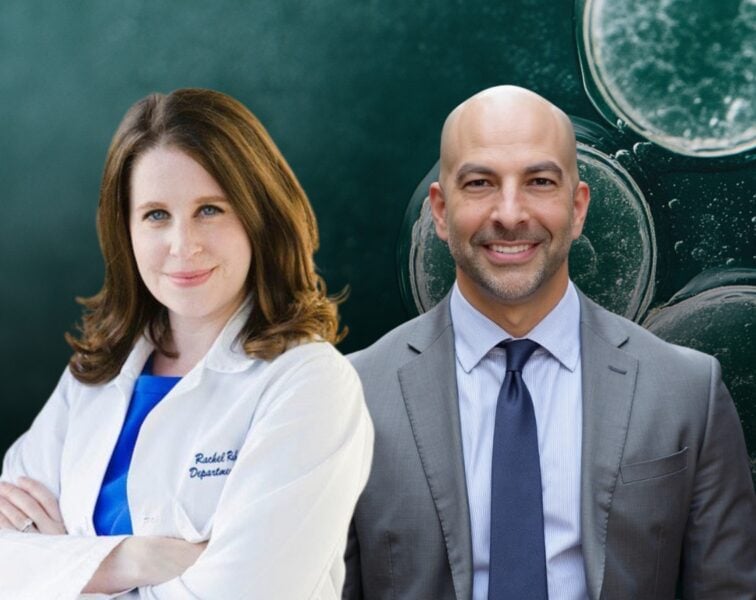Whenever I’m stumped on a patient case, or in my thinking about lipids, Dr. Ron Krauss is one of the first people I turn to for insight. I’m not alone. Ron is recognized globally for his research into lipidology and has worn many hats in his career, including clinician, lipidologist, nutrition, genetics, and drug researcher. He received both his undergraduate and medical degrees from Harvard and is board certified in internal medicine, endocrinology, and metabolism. He’s currently the senior scientist and director of atherosclerosis research at Children’s Hospital in Oakland.
Subscribe on: APPLE PODCASTS | RSS | GOOGLE | OVERCAST | STITCHER
My hope is that both the curious patient and the physician can get a lot out of this episode by being more informed about dyslipidemia and the interventions used to reduce the risk of atherosclerotic disease, cerebrovascular disease, and peripheral vascular disease.
We discuss:
- The pathogenesis of atherosclerosis;
- How early atherosclerosis begins;
- Ron’s motivation for getting into lipidology;
- How reading an article series in the NEJM in 1967 had a profound impact on him and his career;
- The “battle” between LDL particle size and particle number;
- The use of statins;
- The role of chronic inflammation in atherosclerosis;
- Why niacin may have been unjustly dismissed as a therapeutic option;
- The HDL paradox: why drugs that raise HDL-C seem to elevate (or have little impact on) heart disease risk;
- Mendelian randomization: nature’s randomized trial;
- How PCSK9 inhibitors work and why they may be underutilized;
- Lp(a); and
- More.
Get Peter’s expertise in your inbox 100% free.
Sign up to receive An Introductory Guide to Longevity by Peter Attia, weekly longevity-focused articles, and new podcast announcements.
Would you like access to extensive show notes and references for this podcast (and more)?
Check out this post to see an example of what the substantial show notes look like. Become a member today to get access.

Ronald Krauss, M.D.
Ronald M. Krauss, M.D., is the:
- Senior Scientist and Director of Atherosclerosis Research at Children’s Hospital Oakland Research Institute;
- Adjunct Professor in the Department of Medicine at UCSF and in the Department of Nutritional Sciences at UC Berkeley; and
- Guest Senior Scientist in the Department of Genome Sciences of Lawrence Berkeley National Laboratory.
He received his undergraduate and medical degrees from Harvard University with honors and served his internship and residency on the Harvard Medical Service of Boston City Hospital.
He then joined the staff of the National Heart, Lung, and Blood Institute in Bethesda, Maryland, first as Clinical Associate and then as Senior Investigator in the Molecular Disease Branch.
Dr. Krauss is board-certified in internal medicine, endocrinology and metabolism, and is:
- a member of the American Society for Clinical Investigation;
- a Fellow of the American Society of Nutrition and the American Heart Association (AHA); and
- a Distinguished Fellow of the International Atherosclerosis Society.
He’s a member of the U.S. National Cholesterol Education Program Expert Panel on Detection, Evaluation, and Treatment of High Blood Cholesterol in Adults, founder and past Chair of the AHA Council on Nutrition, Physical Activity, and Metabolism, and a National Spokesperson for the AHA.
Dr. Krauss has also served on both the Committee on Dietary Recommended Intakes for Macronutrients and the Committee on Biomarkers of Chronic Disease of the Institute of Medicine of the National Academy of Sciences.
He has received numerous awards including the AHA Scientific Councils Distinguished Achievement Award and the Centrum Center For Nutrition Science Award of the American Society for Nutrition, and he is listed in Who’s Who in America and the World.
Dr. Krauss is on the editorial boards of a number of journals and is Associate Editor of Obesity.
Dr. Krauss has published nearly 400 research articles and reviews on genetic, dietary, and drug effects on plasma lipoproteins and coronary artery disease.
In recent years Dr. Krauss’ work has focused on interactions of genes with dietary and drug treatments that affect metabolic phenotypes and cardiovascular disease risk. [chori.org]



